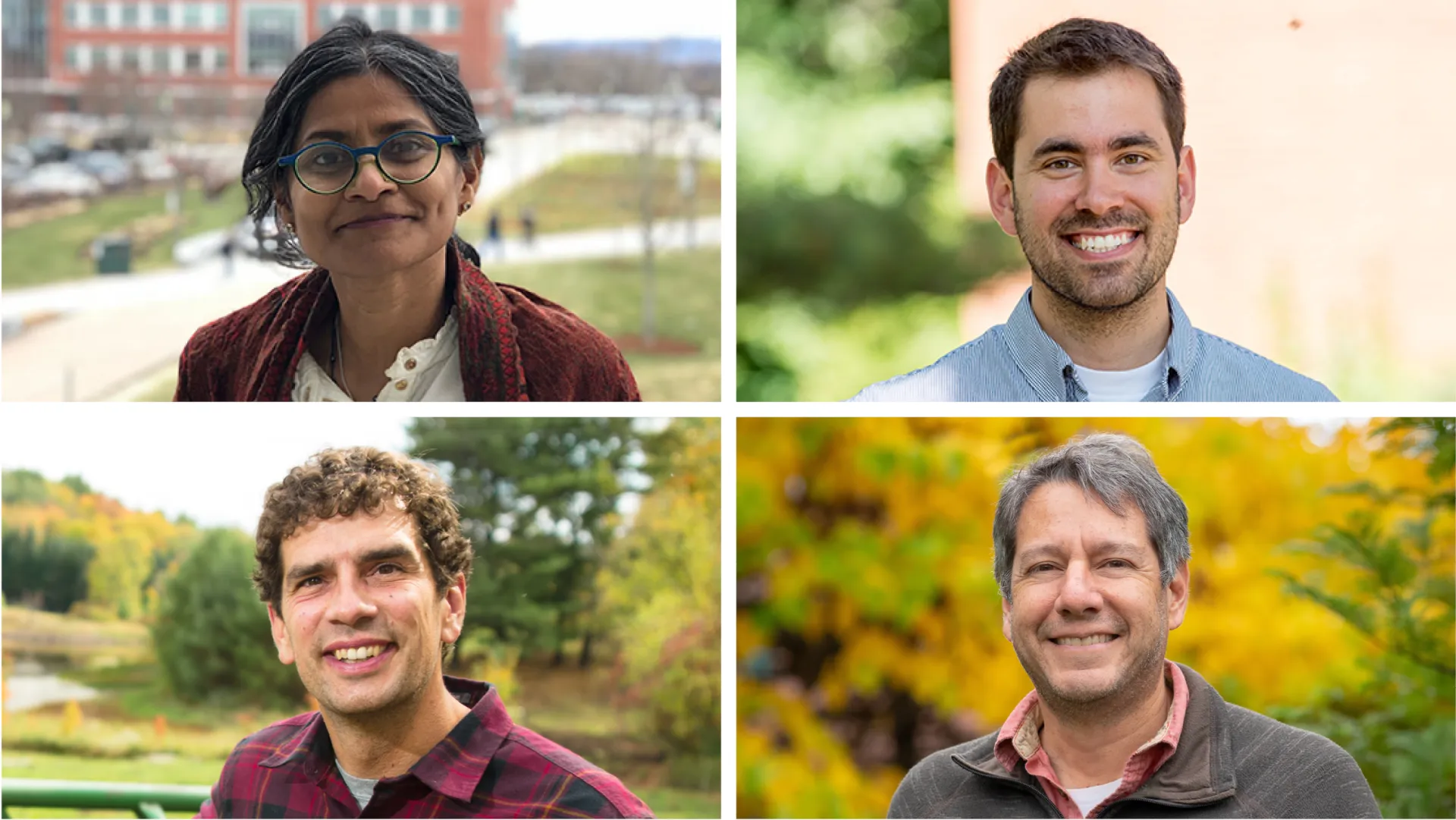The Gund Institute for Environment today announced $250,000 in Gund Catalyst Awards for two research projects targeting critical environmental issues.
These seed grants will launch new UVM research on renewable energy transitions in rural America, and agroecological soil management in partnership with organic coffee farmers in Mexico and Guatemala.
The two projects receiving Catalyst Awards for 2022-2024 are:
Bindu Panikkar (RSENR) and Mads Almassalkhi (CEMS) will examine how communities in rural Alaska are transitioning to renewable energy—including wind and solar—and how these energy transitions are shaping a post-carbon future. Using public utility databases, advanced modeling, surveys and interviews, this research will examine how energy transitions—across the grid, utilities and decentralized settings—enhance community energy security, environmental justice, well-being, sustainable community development, and climate and environmental resilience. The researchers seek to provide a model to assess the impact of future energy transitions across rural America. Collaborators include: Erin Whitney (University of Alaska Fairbanks); Diane Hirshberg (University of Alaska Anchorage); David Breecker (Energy Sovereignty Institute); Nathan Williams (Rochester Institute of Technology); and Sonya Margarethe Ahamed (Michigan Technological University). This project will be supported by a new Postdoctoral Fellow in Just Transitions and Energy Transitions.
Ernesto Méndez (CALS) and Joshua Faulkner (Extension) will work with organic coffee producers in Mexico and Guatemala to investigate and promote soil health as a means to protect crop yields, livelihoods, and the environment. This project will employ a Participatory Action Research approach to explore the efficiencies and challenges of soil management and seek consensus on practices for maintaining healthy soils. With local experts and producers, they will co-create a soil health assessment that makes soil data collection and analysis more accessible and establishes a baseline for soil health that can be used to launch future research. Collaborators include UVM student Andrew Gerlicz, Alejandra Guzmán Luna (Universidad Veracruzana, Mexico), and farmers associated with the Campesinos Ecológicos de la Sierra Madre de Chapas (CESMACH) in Mexico, and the Asociación Barillense de Agricultores (ASOBAGRI) in Guatemala.
“Gund Catalyst Awards help UVM researchers launch innovative new projects that inspire action on critical environmental issues,” says Gund Director Taylor Ricketts. “From clean energy in rural America to sustainable agriculture in Latin America, these two exciting projects show great promise to grow and have real-world impact.”
In just five years, the Gund Catalyst Award program has provided over $1 million in startup funds, supporting 22 innovative projects and over 100 UVM scholars. These projects have generated over $14M in external funds, a 14-to-1 return on investment, and inspired real world action.
Recent Gund Catalyst Award projects include the National Food Access and COVID Research Team, one of the largest studies of food insecurity and health during the pandemic, and the Vermont Climate Assessment, which is already informing state climate action. Other Catalyst projects have explored how the global health benefits of climate action exceed the costs, the 20 best places to reduce U.S. farm nitrogen pollution, the benefits of urban nature to human health, a sustainable certification approach for the cashmere industry, and an international crop genetics consortium.
Each Catalyst Award connects multiple Gund research themes: climate solutions, sustainable agriculture, resilient communities, equity and justice, and health and well-being. These themes, which echo UN Sustainable Development Goals, connect UVM scholars to global priorities and increase opportunities for impact.
The 2022-24 awards will support at least six faculty and students from three UVM colleges or schools and four departments. Local, national, and international collaborators from at least eight partner institutions will participate. This year, teams applied for up to $50,000 per project, and could apply for additional funds to support a postdoctoral researcher for two years.
Catalyst Award proposals are evaluated on five criteria: intellectual merit, interdisciplinary reach, strength of team, potential for impact, and potential for growth. Additional priority is given to projects that address inequality, racial justice, and diversity dimensions of these environmental challenges; and to new UVM collaborations with external partners and opportunities for students. Proposals are reviewed by UVM and external evaluators.
Other Gund funding opportunities include: Equity and Justice Research Awards (with UVM’s Office of the Provost), COVID Rapid Research Fund (with the Office of Vice President Research), Apis Fund, which supports conservation and research on bee pollinators, fellowships and awards for PhD students, postdoctoral researchers and undergraduates, and the Eric Zencey Prize in Ecological Economics, which celebrates long-form environmental writing.
Learn more about Gund Catalyst Awards.
